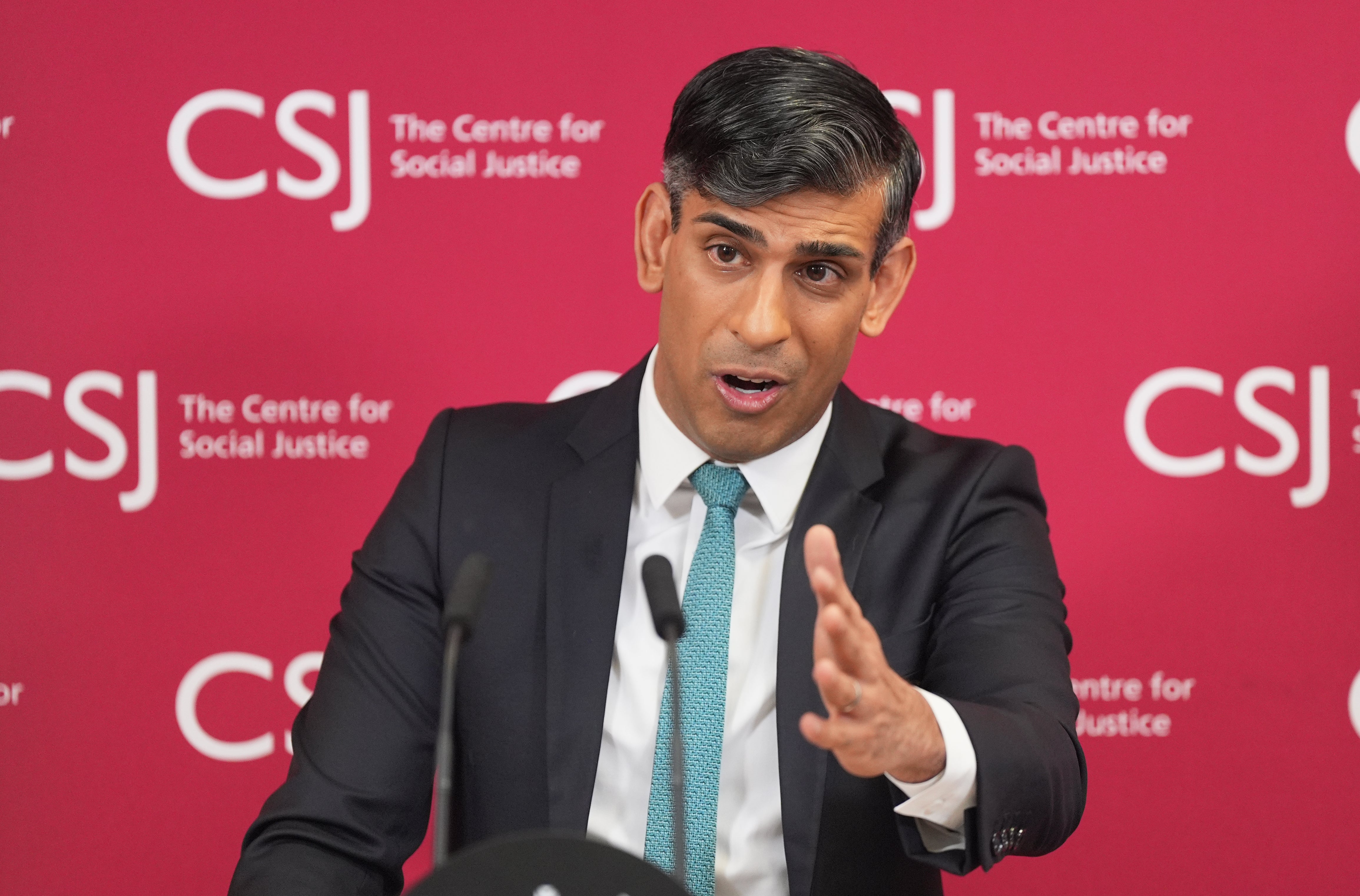Rishi Sunak is absolutely right to face up to the rise of long-term sickness
The prime minister may not be around to see it through, but he is pointing the way, writes John Rentoul


We may think we have heard it all before. Getting people off welfare into work was a New Labour slogan borrowed from Bill Clinton. Alan Johnson, when he was health secretary in 2007-09, campaigned against Britain’s “sick note culture” and tried to turn it into a “well note culture”.
But the problem has not been solved, and it is getting worse. We should be clear that, overall, the proportion of people of working age who are out of work and on benefits is not as high as it was at its peak in the mid-1990s. It went up during the pandemic, since when the numbers recorded as unemployed have fallen, while the numbers on long-term sickness benefits have risen – and are predicted to carry on rising.
In his speech today, Rishi Sunak pointed out that the total bill for this part of the welfare budget is now more than we spend on schools. With his logical mind, the prime minister broke down the problem into its component parts. The biggest component of the rise is people withdrawing from the labour market because of mental illness; and the biggest part of that increase is among young people.
As he said: “That’s not right; it’s not sustainable and it’s not fair on the taxpayers who fund it.” He was right to say: “People are not three times sicker than they were a decade ago.” It may be, as he acknowledged, that we are more aware of mental health problems, and more compassionate about them. But he is also right to say that allowing people, especially young people, to drop out of the labour market is bad for them as well as bad for the rest of us.
One of the most striking lines in his speech was this: “There is nothing compassionate about leaving a generation of young people to sit alone in the dark before a flickering screen, watching as their dreams slip further from reach every passing day.”
And he sounded like a higher-timbred Gordon Brown when he ended with the ringing declaration of intent to “fulfil our moral mission, to restore hope and give back to everyone who can, the dignity, purpose and meaning that comes from work”.
So I revised my initial scepticism about “welfare reform” being one of the refuges of a prime minister who has run out of ideas. There were many problems with the speech, but it was a genuine attempt to confront a serious and growing problem.
Indeed, it reminded me of a series of speeches delivered by another Labour prime minister – when Tony Blair, in his last six months in office, set out to tackle a series of difficult problems (such as pensions and Trident renewal) rather than simply leave them to his successor.
Sunak’s speech may not have gone very deep, suggesting consultations and more pilot schemes. When making the central proposal, of “shifting the responsibility for assessment from GPs and giving it to specialist work and health professionals”, the prime minister did not mention the existing army of disability assessors who already do this kind of work – not very well, according to some mental health charities.
He seemed to speak from the experience of his father, a former GP, in saying that many GPs do not want to be responsible for signing people off sick: because of their relationship with their patients, “it puts them in a difficult position”, the prime minister said.
And Sunak’s analysis may not have been rigorous enough, because some of the implications of a deeper look at the problem might be that it requires higher public spending in the short term in order to secure long-term gains.
The big puzzle of Britain’s long-term sickness problem is that it is different from the experience of most other countries emerging from the shock of the pandemic recession. Britain is unusual in that the rate of employment has not yet recovered to pre-pandemic levels, and other countries do not have the same pattern of rising long-term sickness.
Part of this may have to do with the NHS, the uniquely British institution, which seems to be handling the after-effects of the coronavirus worse than the health systems of most other countries. This means some long-term health conditions have not been treated, although it doesn’t really explain the rise in mental illness.
The other part is likely to be incentives. Life is hardly cushy on long-term sickness benefits, but the regime for unemployment benefits is so stringent that it tilts the incentive that way. Most people on sickness benefits are not required to look for work, and much of Sunak’s speech was devoted to the idea that those with “less severe conditions will now be expected to engage in the world of work – and be supported to do so”.
This is absolutely right, but it implies higher public spending for several years in order to secure long-term savings. What the prime minister was doing, therefore, was setting out the policy for a likely Labour government. Let us see if he is prepared to support that Labour government when it sets out the spending implications of his own speech.






Join our commenting forum
Join thought-provoking conversations, follow other Independent readers and see their replies
0Comments